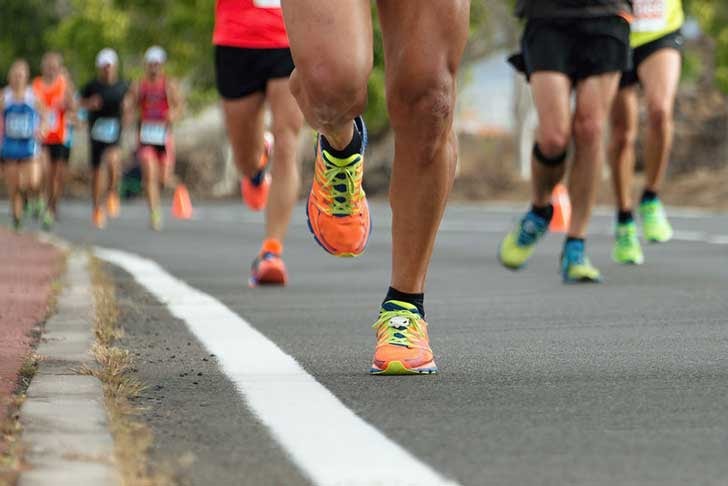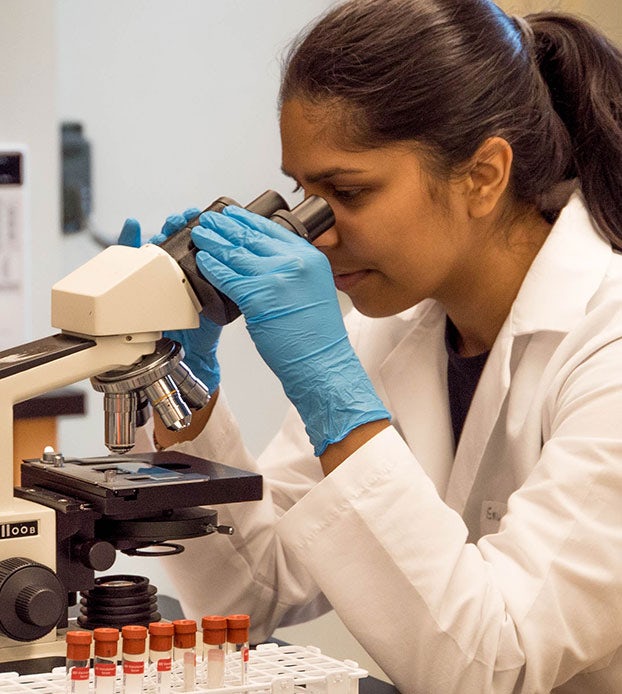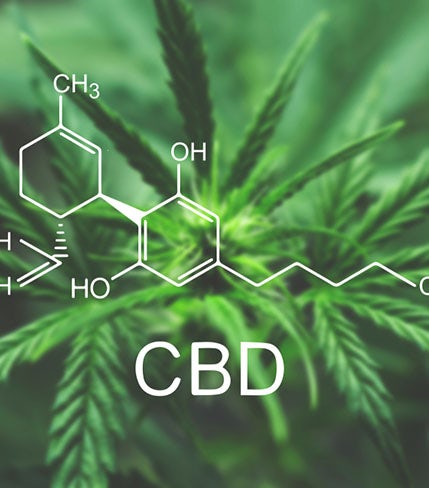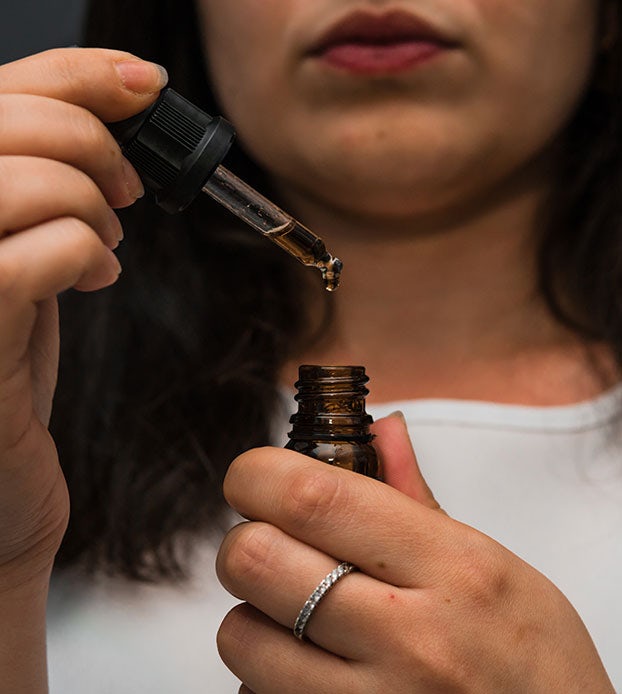Attitudes about cannabis in sports are rapidly changing. Cannabis is now a hot topic among professional athletes, with big names getting involved in research projects and launching sport-focused cannabis brands. Even major sports leagues are starting to reassess their opinions on the plant, with Major League Baseball (MLB) one of the first organizations to remove it from its list of banned substances. Other leagues have loosened their rules, with some formally or informally stopped testing for cannabis.

A growing field of study is looking at the potential of cannabis and cannabinoids to be integrated into sports medicine.
Cannabis is being researched for its applications in sleep, inflammation, injury recovery, traumatic brain injury, and many other medical conditions that are directly relevant for athletes and sports.
➤ Get your medical card now with The Cannigma Medical
Little of the research into cannabis and these conditions specifically relates to sports, but there is enough preliminary evidence from other conditions to see the plant’s potential for applications in sport-medicine.
Cannabinoids for chronic pain
Cannabis and cannabinoid medicines may also help sports-related injury recovery thanks to the powerful pain-relieving effects. These properties are well documented (including for arthritis, cancer, multiple sclerosis) but there is little sports-specific analysis available.
One study from 2016 looked at the efficacy of cannabis for people with different kinds of treatment-resistant chronic pain. It found that cannabis not only reduced pain but also significantly reduced the patients’ use of opioid medications.
A 2015 review of 28 medical studies concluded “there was moderate-quality evidence to support the use of cannabinoids for the treatment of chronic pain.”
Several recent and well-controlled studies also demonstrate how cannabis can reduce neuropathic pain. A double-blind, randomized, placebo-controlled study from 2014 found that for patients with treatment-resistant pain, a THC/CBD spray led to “clinically important improvements in pain scores, sleep scores, and the patient’s perception of the benefits of the treatment.
The implications for sports science are obvious — cannabis-based medicine may help athletes overcome the pain of lingering sports-related injuries.

CBD for healing bone fractures
In 2015 Israeli researchers examined how CBD impacted bone fractures. According to their study, rats with bone fractures, given daily doses of CBD, experienced improved healing. THC did not provide the same healing benefits.
Cannabis for traumatic brain injury
The challenges posed by traumatic brain injuries in sports are getting more attention than ever before, especially by the National Football League (NFL) and the National Hockey League (NHL). Preliminary studies detail how cannabinoids may help protect the brain and speed up recovery.
One study looking at the outcomes of three years worth of traumatic brain injury cases, found that THC was associated with a lower chance of death.
A 2017 animal study looked at how manipulation of cannabinoids positively benefited animal models of traumatic brain injury. The researchers found that, in the animal models, cannabinoids reduced brain lesion size, slowed neurodegeneration, and offered other biological protections to brain tissue. Clinical studies are now underway in Colorado, looking at hemp-based CBD products for recovery from traumatic brain injuries.
Cannabis for reducing inflammation
Finally, cannabinoids have anti-inflammatory properties. Athletes constantly battle inflammation related to repetitive strain, arthritic flare-ups, or historical injuries. As they push themselves in training and on game day, they need rapid recovery from muscle strain and tissue damage.
If cannabis can reduce inflammation related injuries and improve muscle recovery, it could be used in sports medicine for active recovery.

We know from animal studies that cannabis has strong anti-inflammatory properties, and many humans use cannabis to relieve symptoms of inflammatory conditions like rheumatoid arthritis, multiple sclerosis, inflammatory bowel disease, and hepatitis.
A 2010 review of existing studies concluded that CBD on its own could be a helpful treatment for inflammatory conditions, because it can stop or slow inflammatory factors like the production of cytokines.
Cannabis for mood and anxiety: A competitive advantage?
Another area worthy of investigation for sports science is the impact cannabis consumption may have on sleep, mood, and anxiety. In fact, most cannabis brands created by athletes for athletes highlight these plant-based benefits.
Cannabinoids, through their seamless interaction with the endocannabinoid system, do impact sleep, mood, and memory, but the direct impact on sports science is less understood.
For example, a team of Brazilian researchers published a study on CBD for social anxiety, as incited by a simulated public speech. The participants receiving the CBD had “significantly reduced anxiety, cognitive impairment and discomfort in their speech performance, and significantly decreased alert in their anticipatory speech.” It’s easy to see the parallels between sports-related performance anxiety and public speech. With more study, CBD could give athletes a competitive edge by reducing their pre-game jitters.
Another often-marketed area for cannabis in sport science is the impact it has on sleep. Unfortunately, this area is convoluted, and science doesn’t always support the popular use of the plant as a sleep aid.

While many people use cannabis to help them get to sleep and stay asleep, the long-term impact could be detrimental to a good night’s rest.
Certain cannabinoids used for a short period may be helpful, but in the long run, cannabis seems to make sleep less restorative. According to a literature review from 2017, “cannabidiol (CBD) may have therapeutic potential for the treatment of insomnia.”
On the flip side, “Delta-9 tetrahydrocannabinol (THC) may decrease sleep latency but could impair sleep quality long-term,” the researchers wrote. They also note the dose-dependant nature of cannabis for sleep, meaning small doses can improve sleep, while larger doses disrupt it.
Much more research is needed to find out the specifics of how cannabinoids regulate sleep and if these could impact sports recovery or performance.
Is cannabis a performance enhancing drug?
Part of the controversy about cannabis in sports is the fear of its use as a performance-enhancing drug. To some extent, the industry continues to perpetuate this fear. But does the plant have any performance-enhancing properties?
In 2017, the Journal of Sports Medicine published a systematic review of a decade’s worth of cannabis-focused science to determine if the plant had any impact on strength or cardiovascular fitness.
As this is a relatively new field of study, there were few studies actually on athletic performance. Therefore the review cast a broad net, which included some studies on rehabilitation programs or health screening programs where exercise was a component.
The researchers determined that THC did not improve strength or aerobic activity, and in most cases, was actually detrimental. For example, they looked at several studies testing THC’s impact on aerobic activity. In every case, these studies found “decreased maximal workload” and “decreased exercise duration,” where “weakness was clearly demonstrable.” In all applications, especially with high doses, THC likely impairs performance.
That review found no research looking specifically at cannabis and metrics such as running times, weight lifting, or accuracy in a target related events. However, several leagues have stated that cannabis is not performance enhancing or is not generally taken with the intent of enhancing performance.
The future of sports medicine and cannabis
Cannabis in sports has experienced a remarkable shift over the last few years. In both professional and amateur circles, cannabis is no longer vilified as a drug. Instead, many professional athletes, coaches, and even a few national sports leagues are touting its benefits.
While popular opinion about the benefits of cannabis is on the up-and-up, sports science is working hard to catch up. To date, there is little research on cannabis for sports-related injuries or sports specific applications — just a lot of early work on other conditions. Based on non-sports specific research into cannabinoids for mood, anxiety, recovery, inflammation, and pain, there is a strong suggestion that cannabis has a big future in sports and athletic health.
Sign up for bi-weekly updates, packed full of cannabis education, recipes, and tips. Your inbox will love it.

 Shop
Shop Support
Support
















